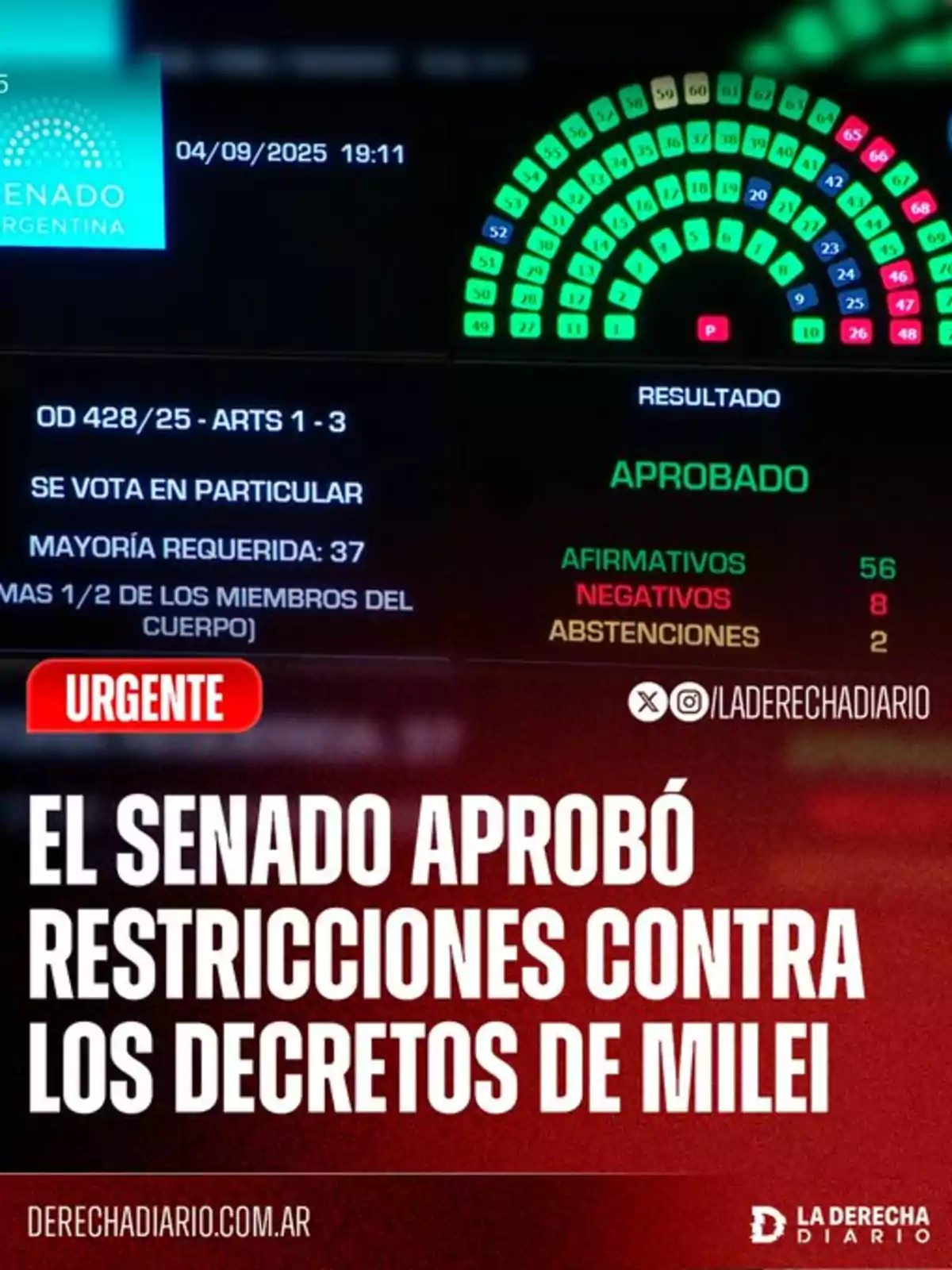
The Senate approved restrictions on Javier Milei's decrees.
The measure only seeks to complicate and hinder President Javier Milei's governance
In a decision that seriously complicates governability and undermines democracy, the Senate gave preliminary approval to a bill that restricts the use of Necessity and Urgency Decrees (DNU), aiming to take away from President Javier Milei a key tool for taking swift action.
The approved initiative introduces unprecedented limitations on the use of DNUs: it requires the express approval of both Chambers, with an absolute majority of those present and within a maximum period of 90 days, eliminates the requirement for rejection by both Chambers (now it is enough for just one to reject it for it to be annulled), and restricts each decree to a single subject, removing flexibility to address complex situations.
In addition, it also prohibits the Executive Branch from issuing another decree on the same subject during the same parliamentary year, further reducing the Government's ability to respond.

This authoritarian opposition move constitutes an attempt to tie the President's hands and block any reform that doesn't have the endorsement of the political establishment, shifting decision-making power to Congress and reducing the executive's capacity. With this strategy, the violent political parties that failed to prevail at the polls now seek to constrain the Executive Branch from within Parliament.
This is an unprecedented event in Argentine history for Congress to move forward with a bill that cuts back presidential powers regarding DNUs in this way.
The dangerous initiative must now go to the Chamber of Deputies, where a heated debate is expected. If confirmed, President Milei and the majority of Argentines will see one of their main tools for action affected in what many already describe as a direct blow to presidential authority and the country's governability.
More posts: